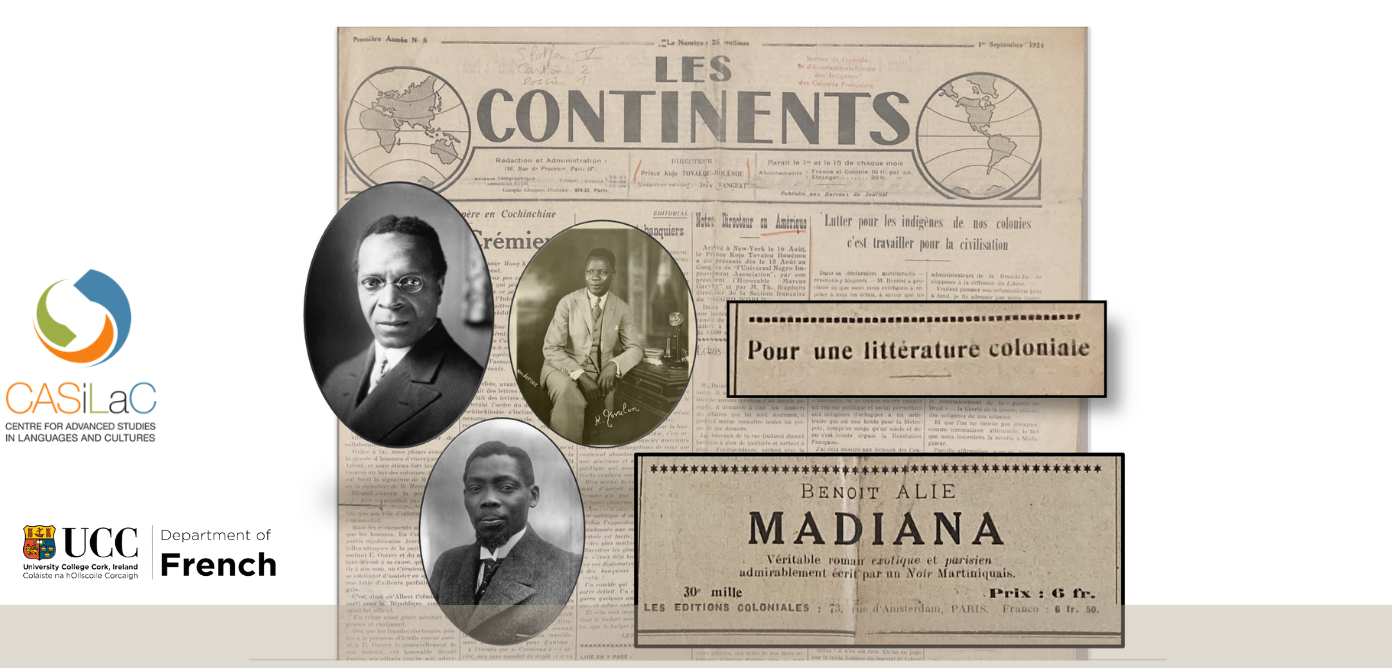"L’Amère Patrie": Benoît Alié’s French Signifyin’ | Dr Jemima Hodgkinson (UCC Department of French) | Thursday 8 May @ 5pm GMT
1 May 2025

This is the third of our series of School of Languages, Literatures and Culture’s Research Ireland Postdoctoral talks. The talk will be in English, and it will be hybrid - in UCC's O Rahilly Building room 1:24 and via Teams. All are very welcome to attend.
In 1924, the French newspaper
Les Continents led the publicity for a new book by an unknown author: ‘Véritable roman
exotique et
parisien’, read the advertisement, ‘admirablement écrit par un
Noir Martiniquais’ (1). This advertisement for Benoît Alié’s
Madiana, Roman poétique sought to capitalise on the success of René Maran’s
Batouala, Véritable roman nègre (1921) and a growing taste among French readers for the exotic, emphasising at once the novelty of the author’s race and the familiarity of the book’s Parisian charm.
In reality,
Madiana was a much coarser read, and far less flattering to the French elite. In verses of crafted alexandrines, Alié delivered a biting satire taking aim at France’s literary and political establishments. The true, disruptive nature of Alié’s book was conveyed by two promotional interviews, also published in
Les Continents, with Alié and his publisher, Emmanuel Édouard. ‘Des éclats ricochent parfois jusqu’aux murs de l’Institut ou du Palais-Bourbon’, wrote the anonymous interviewer in their assessment of
Madiana, ‘éclats de rire, plus dangereux que les bombes terroristes’ (2).
This paper locates the power of Alié’s work in its double-speak, that is, its action to subvert the key terms of imperialist discourse and to insert new meanings into common tropes. As such, I frame Alié’s
Madiana as a French iteration of the black vernacular tradition theorised by Henry Louis Gates Jr. as ‘Signifyin’’. A precursor to the verse of Étienne Léro, René Menil, and Jules-Marcel Monnerot (3), Alié’s Janus-faced writing prompts us to reconsider the importance of the 1920s to French Caribbean modernism, an era too often dismissed as the ‘uninteresting prelude’ (Miller 1998) to Negritude.
(1). ‘Truly
exotic and
Parisian novel, admirably written by a
Black Martinican.’
(2). ‘Bursts richochet, sometimes as far as the walls of the Institut [de France] or the Palais Bourbon. Bursts of laughter, more dangerous than terrorist bombs.’
(3). Martinican poets and co-founders of
Légitime Défense (1932).
Department of French
Contact us
Room 1.22 Block A, First Floor, O'Rahilly Building, University College Cork
